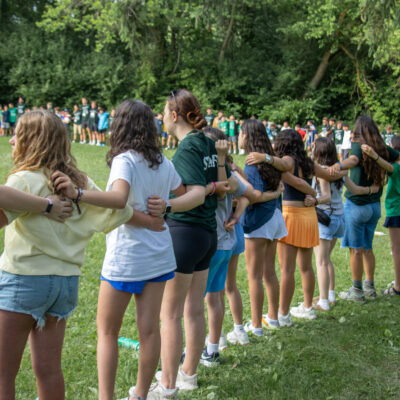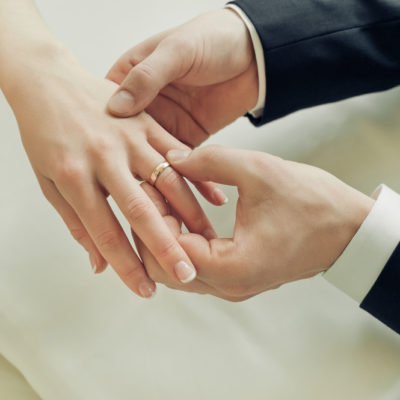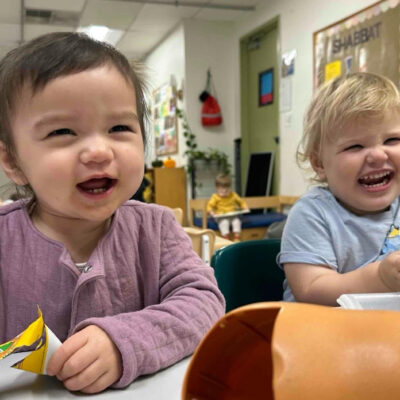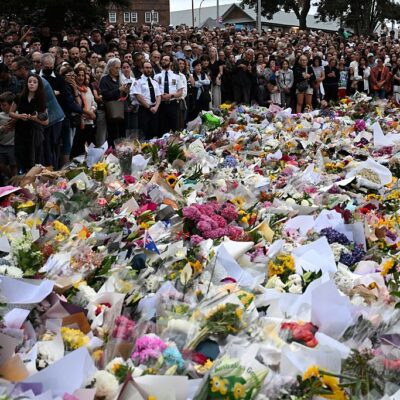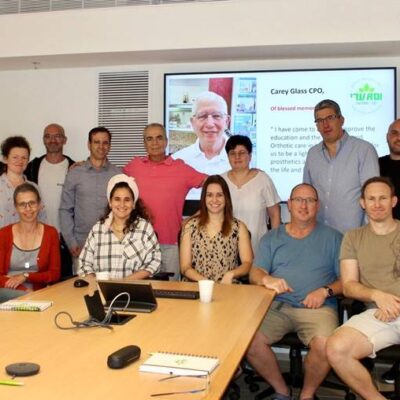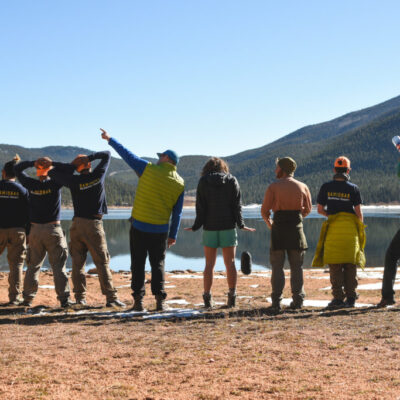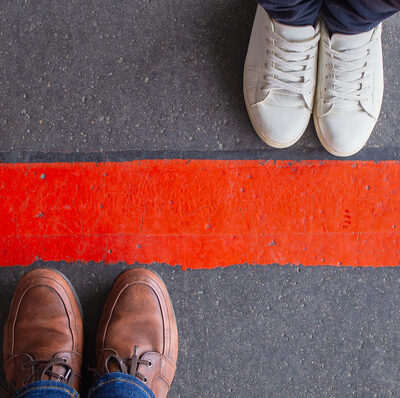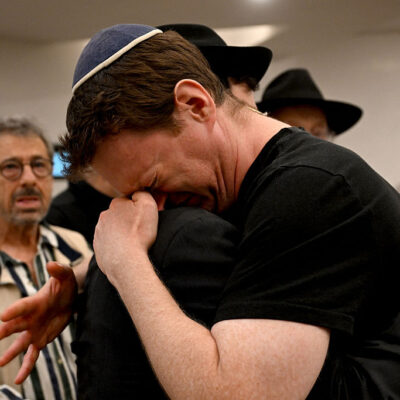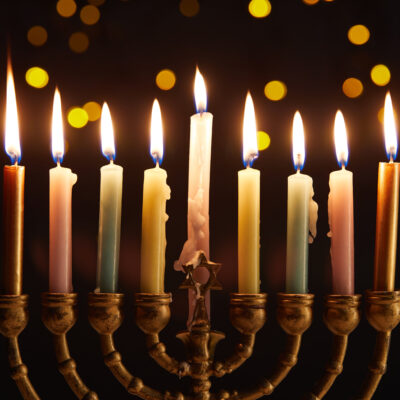Opinion
Could podcasting help us rediscover Judaism?
It started with “BROgramming.”
In my six years as a Hillel professional, I had learned that Judaism had to be accessible, resonant and relevant. And so I created “BROgramming”— an opportunity for underserved male students to connect to each other Jewishly and socially through activities like Baseballs and BBQs (where they made their own mezuzot) and a Chanukah-themed Jews v. Greeks laser tag event.
Six years later, I brought this idea of making Judaism relatable to my first year of rabbinical school in Jerusalem. I created “Drinking and Drashing,” evenings of creating cocktails and connections to the Torah in an informal setting.
So when Rabbi Andrew Goodman, Hebrew Union College’s director of student support, said “You should make that a podcast!” I did what any person who wanted to raise Judaism’s level of excellence would do. I said, “No.” After all, who had the time?
As the pandemic’s imposed isolation increased, so did my need for entertainment. Listening to podcasts like “Judaism Unbound,” the “Study,” and the “Scrubs” rewatch podcast, I heard Rabbi Goodman in my head again, and called up two friends. “We should make it a podcast.” We were tuned in and wanted to help those who were seeking connection, community, and continuity.
We heard that podcast popularity had doubled during the pandemic, with 120 million podcast listeners in the country in 2021, according to statista.com.
We listened to the Pew Report, sharing that Jews were feeling disconnected to Jewish organizations and memberships. We heard the oft-repeated claim that people don’t feel “Jewish enough” to participate in Jewish organizational life.
And then we realized something extraordinary: podcasts challenge that conception, ensuring that Judaism can indeed be made accessible to and resonant for anyone who wants to tune in.
Podcasts enable Jews to “na’aseh v’nishmah” — to do and to listen — all at the same time. Good podcasts raise all voices (“Judaism Unbound,” “Can We Talk?”), grapple with the difficult (“Jews Talk Racial Justice,” “Unorthodox”), and inspire exploration (“On the Other Hand,” “Jews Oughta Know”).
As an educator (and now an avid podcast listener), I would argue that active learning and a “passive medium” aren’t necessarily (or even traditionally) mutually exclusive.
Empowering others to connect to Judaism on their own terms and in their own time can create a strong community of “listeners” (Torah lishma) who are expanding upon their own questions and assumptions about “how to do Jewish.” This makes it possible for people to actively take ownership of their own Judaism through what’s considered a passive medium — utilizing podcasts for Torah lishmah — learning Torah for its own sake).
“Listening in” to Torah in order to understand it isn’t exactly new — in fact Torah was originally an aural experience — we heard it in order to learn it, in the marketplace with Ezra and Nehemiah, musically with the Masoretes, and even rabbinically when they called out to us “ta sh’ma” — “Come and hear!” (more modernly translated as “Come and learn!”) before sharing and struggling with a new significant argument.
I believe that we clarify and take ownership of Torah when we are empowered to apply it to our own lives, to connect our inherited stories and messages to the actions and decisions that we make daily.
Taking advantage of a digital asynchronous modality, podcasts facilitate an accessible way for Jews to forge stronger personal and communal connections. For those looking for a new way to connect Jewishly, podcasts can help translate Torah into tangible tools and tactics that are accessible and relevant to anyone. For those who feel more connected to the field personally or professionally, a podcast platform can provide a fresh perspective.
As we read Parashat Mishpatim this week, we see a beautiful example of the power of action and listening in. “Na’aseh v’nishma” our Israelites swear to Moses: “We will do and we will listen.” — giving us the understanding that we can enter into something powerful through the combination of action and attention. Perhaps this is why “Drinking and Drashing: Torah with a Twist” has been successful. We’ve made one episode a week since October 2020, with a listenership that spans 34 countries.
While our history encourages us to learn for the sake of learning —Torah lishmah, it seems that our people may just learn best through listening —Torah lishma. As for us at “Drinking and Drashing: Torah with a Twist”, we just raise it to one level further: na’aseh v’nishma v’nishteh — we will do, we will hear, and we will drink, raising a glass to all of our learning community.
Amanda K. Weiss is one of the co-hosts and founders of the weekly podcast “Drinking and Drashing: Torah with a Twist” and is a current rabbinical student at Hebrew Union College-Jewish Institute of Religion in New York. You can find weekly episodes at www.anchor.fm/drinking-drashing or delicious weekly Shabbat drink recipes at www.drinkinganddrashing.com.

 Add EJP on Google
Add EJP on Google